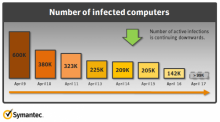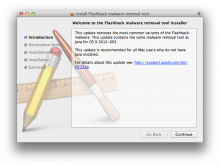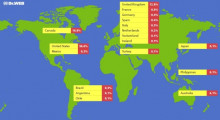140K Macs still infected with Flashback despite Apple fix
Despite Apple's release of numerous Java patches and an uninstaller tool, some 140,000 Macs worldwide are still affected by the Flashback trojan that was at one point present on 600,000 machines.
Although malware-affected Macs are on the decline, the numbers are at a point much higher than forecasted by software maker Symantec, according to a Tuesday post on the company's blog.











































































